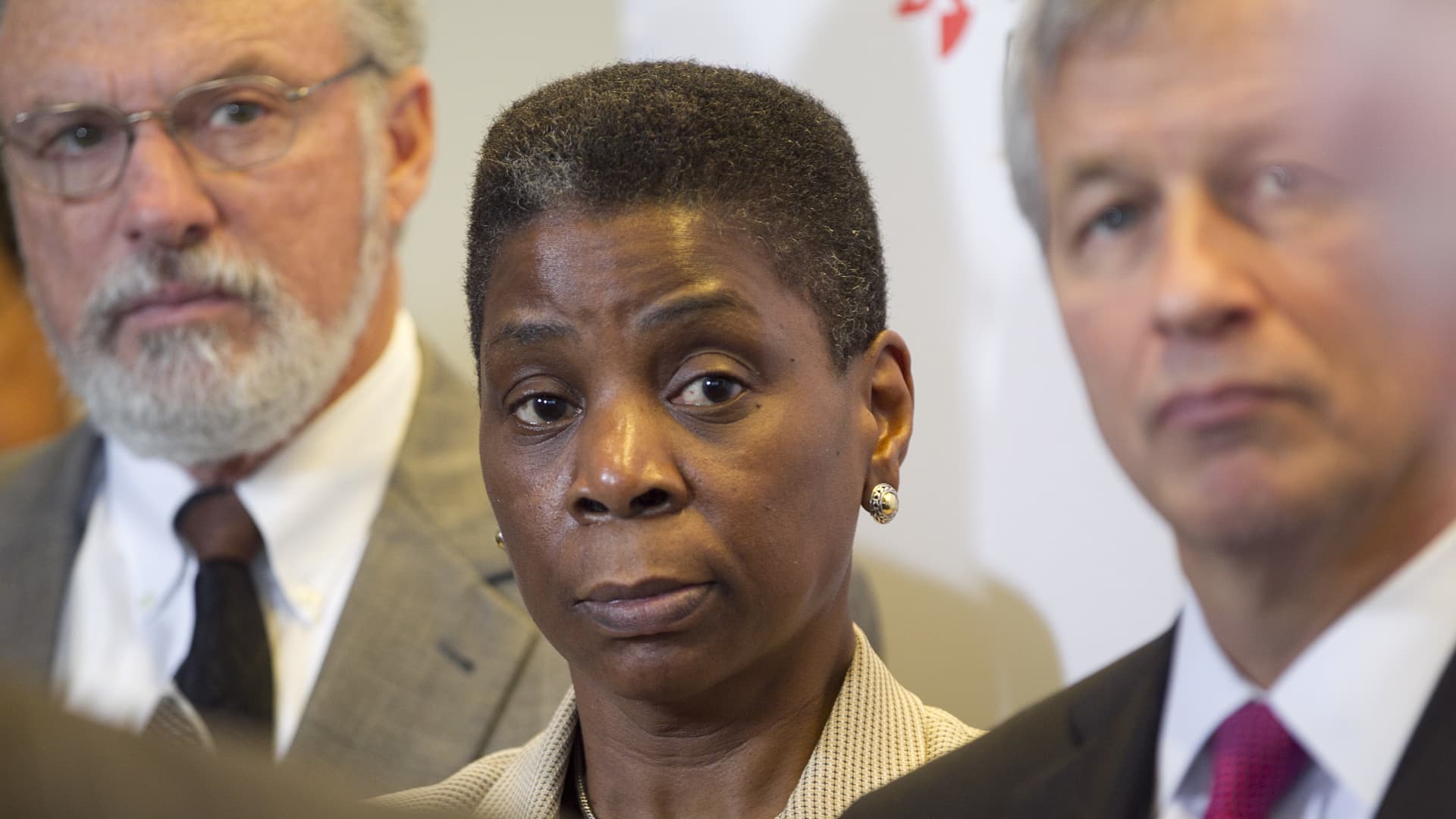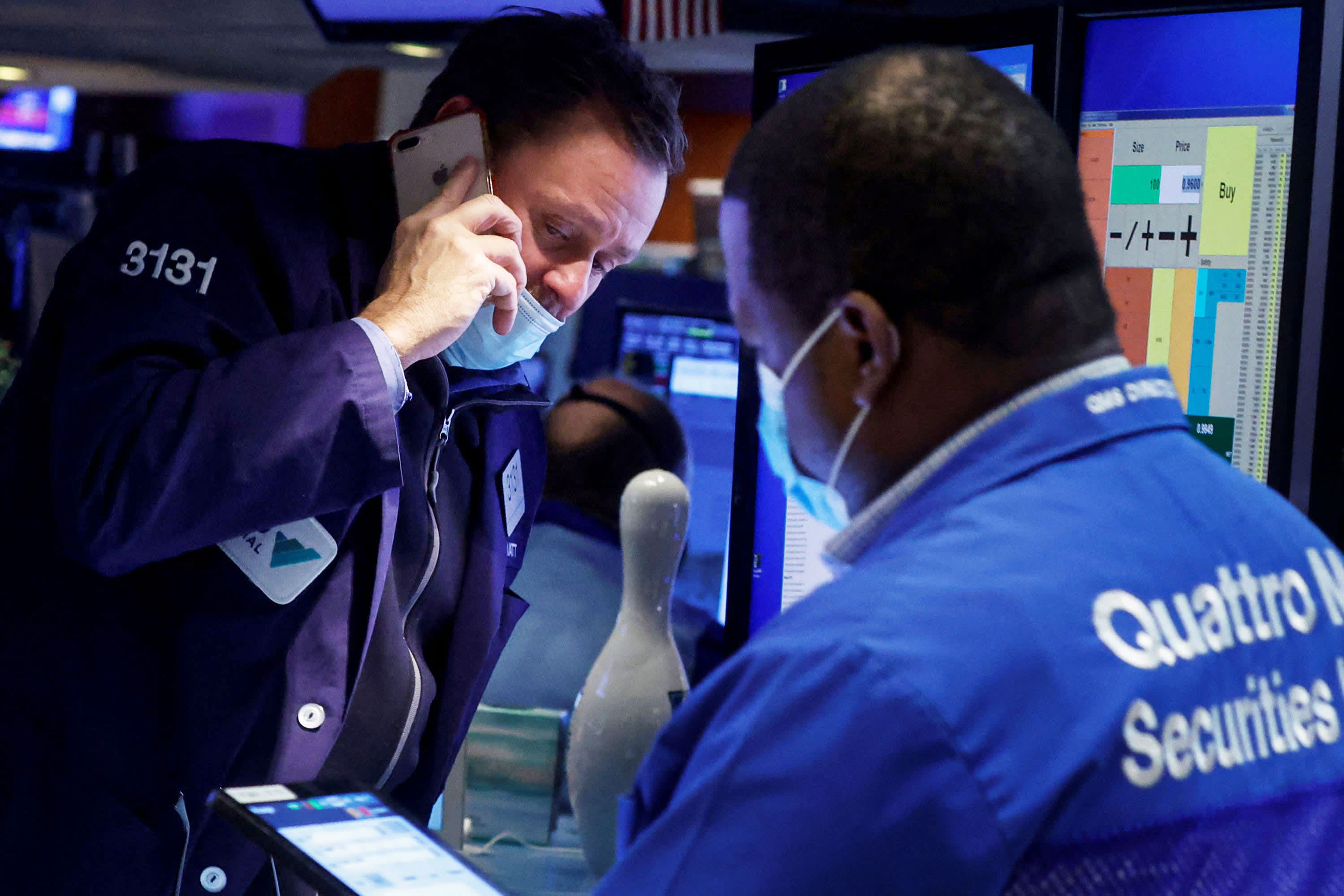Why the first Black woman CEO in the Fortune 500 says 'being the minority' can be a career advantage
Ursula Burns, the first Black female CEO of a Fortune 500 company, gets personal with CNBC Make It about leadership, career strategies and her historic rise.

This story is part of the Behind the Desk series, where CNBC Make It gets personal with successful business executives to find out everything from how they got to where they are to what makes them get out of bed in the morning to their daily routines.
When Ursula Burns became CEO of Xerox in 2009, she didn't think it was that big of a deal.
Then calls started to pour in from the likes of President Bill Clinton, NBA Hall of Famer Magic Johnson and Al Sharpton, to name a few. Burns had just made history as the first Black female CEO of a Fortune 500 company, a position she held until 2016.
"Then I said, 'Holy sh-t, this is a big deal,'" Burns, 63, tells CNBC Make It.
The spotlight was new territory for Burns. So was the job: Xerox, a 100-year-old tech giant, was struggling to keep up with the times. Burns realized she didn't know nearly half of what she needed to know to run the company.
But she had an intense work ethic, she says. And she was used to thriving in corporate settings as an outsider — being both Black and female. "My natural comfort is being the only or the few in a room," she says. "I became very good at playing in that space."
Burns says she never minded being the only Black woman in any room, even considering it an advantage. "If I raised my hand in any meeting, almost surely, it was called on," she says. "You're so different that, at least in open spaces, they can't ignore you."
Here, Burns discusses growing up in a poor single-parent household, her ascent up the career ladder and why she's a firm believer in "not being too nice."
On growing up poor: My mother was 'clear' that she wanted us to be successful
I'm the middle child of a single-parent household. I have the traditional traits of a middle child: I'm independent, a little bit of a loner and very compliant. I didn't cause a lot of trouble for my mom or at school.
I grew up in a very poor environment. My mother was an immigrant from Panama. She came here with my father, but he left when I was two. She raised all three of us, basically on welfare and bartering skills. She cleaned offices for food and did childcare work — the government had a program where poorer families would take care of middle-class kids after school.
My mother was clear: She had three assets, and those were her kids. One of her famous sayings was, "The world doesn't happen to you, you have to happen to the world."
What she meant is: You can sit back and wait for things to come, or you can literally go out and make things happen. This was in the 1960s, when Blacks were still being fundamentally marginalized. She literally believed that we would be something.
One of her other statements was, "Where you are is not who you are." We grew up in a really bad neighborhood, with drunks and drug addicts in the hallways. It's unbelievable how insightful that statement was for me.
On climbing the corporate ladder: 'My natural comfort is being the only or the few in a room'
I absolutely never expected to be anything but successful. I never expected to be as financially or business-wise successful as I ended up, but I never had even a doubt that I'd succeed.
I was always the minority in the room. I chose a set of careers that were male-dominated, and if [my classmates or coworkers] were Black, they were all male. I have lived my whole life, except for high school, where there were very few people like me.
I've been trying to think about how to describe this in a way that doesn't make it sound trite, but all I can say is that I grew up in my natural place. My natural comfort is being the only or the few in a room — I was always a little bit of a loner, so it didn't bother me. I became very good at playing in that space.
The three strategies that helped her become CEO: 'Being a minority ... turned out to be an advantage'
First, I worked really hard. I chose a career that was perfect for me. It was very analytical, and you could manage it being a loner because you worked on problems by yourself.
Second, if there was a problem that needed to be solved and they needed someone, I always said yes. I didn't negotiate a damn thing upfront. It was just about, "What do you need done?"
Third, I was a minority. Being the minority when you have a little bit of confidence — and you know what you're talking about — turned out to be an advantage more than a disadvantage, at least in the early parts of my career.
If I raised my hand in any meeting, almost surely, it was called on. If I had an idea, people would listen. They may not always comprehend it or agree, but being the minority turned out — at least, at Xerox — to be an advantage.
I think it still can be for many women, Black people, people of color. You're so different that, at least in open spaces, they can't ignore you.
Life as the Fortune 500's first Black female CEO: 'I didn't know nearly half of what I needed to'
It was clear to me that I didn't know nearly half of what you need to know to run a company. Therefore, I needed a team of experts with me.
When you have a team of people with you, you can build a perfect human. You can't do it by yourself. It just doesn't work. And this may be a gender thing, but I had no problem asking for help. None. I wanted feedback, and I wanted to give feedback.
I am a firm believer in not being too nice. [Many] companies have this culture of "everybody be nice — but when we get to the private room, we talk about how we really feel." [We did] it because we didn't want to hurt people's feelings, which I do understand. But it didn't allow them to learn.
If it's good, tell me that it's good. But if it's not good, please tell me so I can fix it.
This interview has been edited for length and clarity.
Don't miss more from Behind the Desk:
Designer Vera Wang on starting her company at 40: 'I thought maybe it's just too late for me'

 JimMin
JimMin 
































